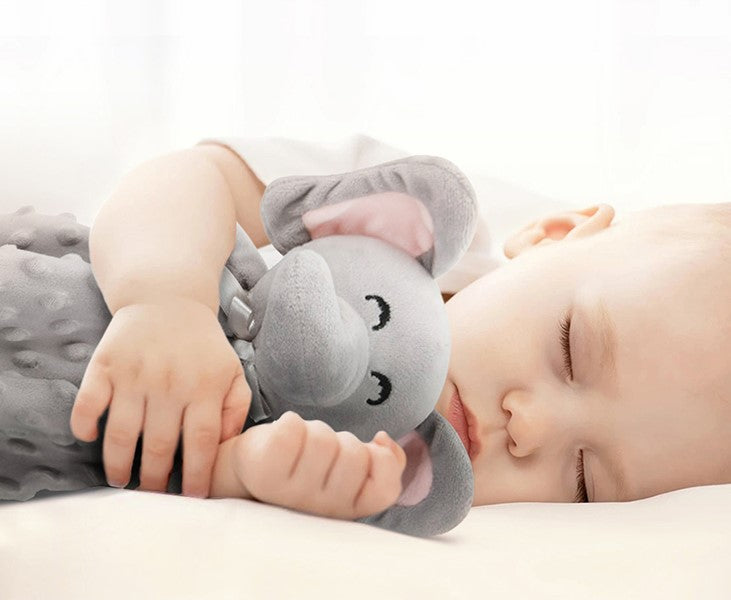
A Peaceful Sleep for Your Baby: 5 Effective Steps to Establish Healthy Sleep Habits for Infants
A baby's sleep is one of the most important concerns for parents, as it significantly affects the baby's health, growth, and development. Lack of sleep in infants can cause fatigue for parents and affect the baby's mood and behavior. In this blog post, we will present 5 effective and tried-and-tested steps to establish healthy sleep habits for your baby, helping them sleep better and enjoy a peaceful and comfortable sleep.
The Importance of Good Sleep for Infants
Good sleep is essential for a baby's physical and mental development. During sleep, the body releases growth hormones, tissues are repaired, and memory and learning are enhanced. Good sleep also helps improve the baby's mood and reduce crying and tantrums.
5 Steps to Establish Healthy Sleep Habits for Infants
-
Follow a Regular Bedtime Routine: Creating a regular bedtime routine helps the baby relax and prepare for sleep. The routine can include:
- A warm bath: Helps soothe the baby and relax muscles.
- A gentle massage: Enhances physical contact between mother and baby and promotes relaxation.
- Dim lighting: Signals to the baby that it's time for sleep.
- Reading a quiet story or singing a lullaby: Helps soothe the baby and prepare them for sleep.
-
Enhance Physical Contact with the Baby: Physical contact between mother and baby, such as cuddling, touching, and massaging, helps release hormones that make the baby feel calm and comfortable, which helps them sleep better.
-
Exposure to Sunlight During the Day: Exposing the baby to gentle sunlight in the early morning or afternoon helps regulate the baby's biological clock and distinguish between day and night.
-
Regular Feeding During the Day: Organizing feeding during the day helps reduce the baby's nighttime awakenings for feeding. As the baby grows, nighttime sleep periods can be gradually extended. It is recommended not to wake the baby up for feeding after they reach two months of age, unless otherwise recommended by the doctor.
-
Observe Sleep Cues: It is important to observe the baby's sleep cues, such as eye rubbing, yawning, crying, or staring at a fixed point. When these signs appear, the baby should be prepared for sleep immediately before they become overtired and find it difficult to fall asleep.
Creating a Comfortable Sleep Environment
In addition to establishing good sleep habits, creating a comfortable sleep environment is crucial for your baby's rest. This includes ensuring the room is dark, quiet, and at a comfortable temperature. A soft and cozy comforter can also play a big role in helping your little one feel secure and snug. We offer a beautiful selection of baby comforters designed for ultimate comfort and safety.
Additional Tips for Better Sleep
- Use a suitable crib or bassinet: The crib or bassinet should be safe and comfortable for the baby.
- Avoid stimulants before bedtime: Avoid giving the baby any stimulants such as sugars or caffeine before bedtime.
Conclusion:
By following these steps and tips, you will help your baby get a peaceful and comfortable sleep, which contributes to their healthy growth and development. Remember that every baby is unique, and you may need to try some methods to determine what works best for your baby. If you are experiencing sleep problems with your baby, do not hesitate to consult your pediatrician.
Ready to create a cozy sleep haven for your little one? Browse our collection of soft and comfortable baby comforters today!
Share



